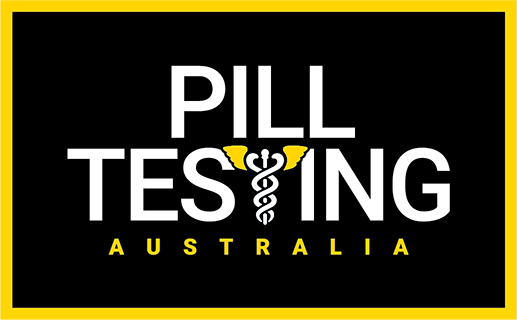Author:
-
Cocaine found in heroin sample
An off-white clumpy powder expected to be heroin was found to be a near-equal mix of heroin and cocaine. What does this mean? While the expectation was heroin, we note that NSW Health released a public drug warning on 13 Sep, ‘Four heroin overdoses following use of cocaine’, and this sample’s packaging is (arguably) more…
-
High dose MDMA (ecstasy) tablets recently found in NSW – also containing a synthetic cathinone
Skull shaped tablets with MYBRAND marking have been found containing high dose MDMA and a synthetic cathinone, dipentylone (also known as N,N-dimethylpentylone). The risk of harm is increased when MDMA is taken with other stimulants including synthetic cathinones, amphetamines or cocaine. Pink-orange: 182-185mg MDMA + dipentylone Blue: 162mg MDMA + dipentylone Yellow: 151 mg MDMA…
-
High dose found in MDMA sample
A light pink pressed pill weighing 454mg expected to contain MDMA (ecstasy), was found to contain 40% MDMA (182mg free base). What does this mean? This amount of MDMA is approximately twice the amount that someone may usually expect to take, either recreationally or in a clinical setting. Effects and signs of MDMA overdose can…
-
Multiple high dose MDMA pills
Detected 20 September 2024 Pink pill: pioneer compact disk jockey press Detected 27 September 2024 Grey pill: Rick (of Rick & Morty) press Detected 20 September 2024 Blue pill: punisher press Detected 10 October 2024 Purple pill: Dom Perignon press What does this mean? A common dose of MDMA is between 80-120mg. This means the…
-
Fentanyl found in brown sample
A brown sample brought to CanTEST for testing was found to contain paracetamol, caffeine, heroin, 6-MAM, and the potent synthetic opioid fentanyl. This is the first time fentanyl has been detected at CanTEST Effects– Fentanyl carries the risk of fatal overdose. Fentanyl is known to cause an opioid-like overdose (lowered/loss of consciousness, person may seem…
-
N-pyrrolidino isotonitazene found in counterfeit oxycodone pill
A round yellow counterfeit oxycodone pill brought to CanTEST for testing was found to be N-pyrrolidino isotonitazene, a type of nitazene. This is a potent new opioid that is 1000x stronger than morphine and 100x stronger than fentanyl. This sample was acquired from the dark web (vendor name not disclosed), but this is the third…
-
Bromazolam found in 2 counterfeit diazepam samples
A round light yellow pressed pill and a small white capsule were both expected to contain diazepam. The light yellow pressed pill features a break-line and DZ 5 press on one side. Both of these samples were found to contain the novel benzodiazepine, bromazolam. What does this mean? There may be other counterfeits that vary…
-
High dose found in MDMA sample
A blue ‘punisher’ press pill weighing 471mg expected to contain MDMA (ecstasy), was found to contain 202mg free base MDMA. What does this mean? This amount of MDMA is approximately twice the amount that someone may usually expect to take, either recreationally or in a clinical setting. Effects and signs of MDMA overdose can include…
-
Opioid overdoses following stimulant use
NUAA IS URGING THE COMMUNITY TO STAY ALERT FOR SIGNS OF AN OPIOID OVERDOSE WHEN USING STIMULANTS. Recent incidents, including an opioid overdose from heroin mis-sold as cocaine and multiple opioid overdoses following methamphetamine use, are driving the concern. Unknowingly taking opioids can kill or cause dizziness, paleness, blurred vision, loss of consciousness, vomiting, difficulty…
